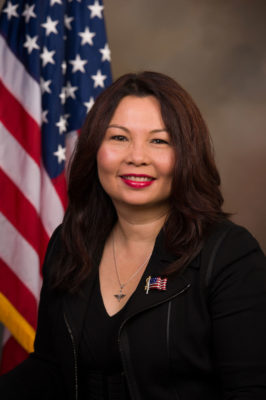U.S. Senator Tammy Duckworth introduced legislation on Wednesday to Protect Military Families from Deportation
the Parole in Place (PIP) program, which allows undocumented family members-parents, children, spouses or widowers-of members of the U.S. Armed Forces and Veterans to lawfully remain in the United States in one-year increments.
The Military Family Parole in Place Act would require the U.S. Secretary of Homeland Security to grant parole to parents, children, spouses or widowers of service members and Veterans who were not dishonorably discharged.
Duckworth said troops serving overseas should be focused on doing their jobs, not worrying about whether their family members will be deported, and that ending these
deportation protections would be a direct threat to U.S. military readiness. ,
The Military Family Parole in Place Act permits the Secretary of Homeland Security
to maintain discretionary authority to deny parole to family members of
service members and Veterans, but such action would require the Secretary of Defense and Secretary of Veterans Affairs to also approve the parole denial. The agencies would then be required to publicly post online all such denials, including a detailed justification for each denial.
In July of this year, Duckworth joined Senate colleagues in calling for the Trump Administration to reverse course on reported plans to end the PIP program.
Earlier this year, Duckworth re-introduced three bills she says are intended to protect and support Veterans and service members.
The Veterans Visa and Protection Act, HOPE Act and I-VETS Act-would prohibit the deportation of Veterans who are not violent offenders, give legal permanent residents a path to citizenship through military service and strengthen VA healthcare services for Veterans.




